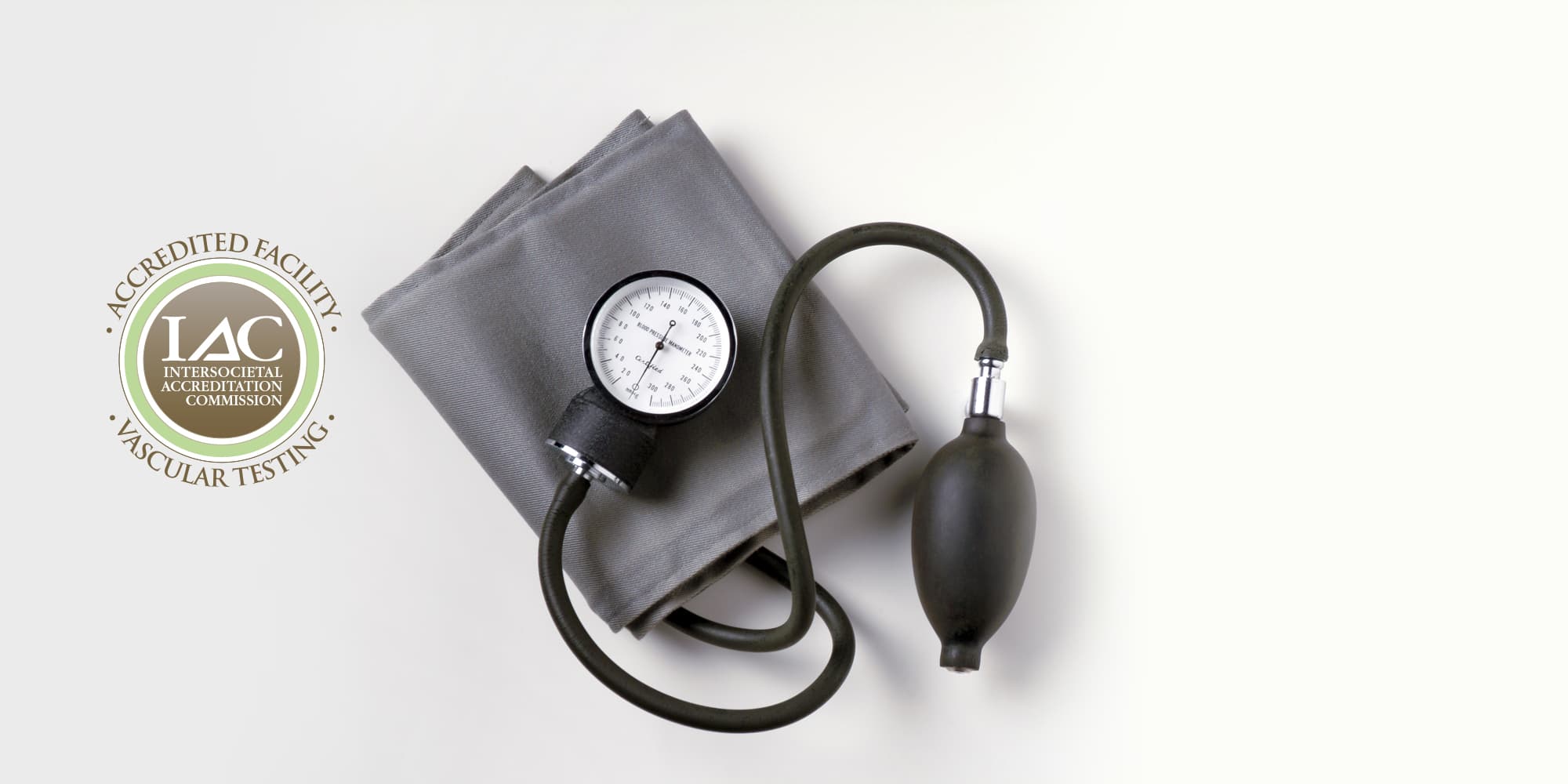Vascular Lab and Testing
Achieving excellent outcomes starts with sophisticated testing to pinpoint the type and severity of vascular disease. At St. Peter’s Health Partners, you have access to nationally recognized vascular testing services close to home. We make it easier to receive the evaluations you need for timely, personalized treatments.
Why Choose St. Peter's Health Partners for Your Vascular Lab and Testing?
Our vascular testing program maintains accreditation from the Intersocietal Accreditation Commission®. This recognition is awarded to programs like ours that demonstrate a superior level of patient care. It means you can count on us for safe testing and accurate results.
Highlights of Our Vascular Testing Program Include:
- Timely Care: Testing is available on short notice, often without an appointment for urgent cases. For nonurgent issues, we see new patients within two business days. If results indicate a problem, you meet with a vascular surgeon in the same visit. We explain the diagnosis and how we can help you feel better.
- Regular Testing: Vascular disease often requires ongoing care. Most visits include an ultrasound of your blood vessels. These services are available on-site, so you receive more of the services you need in one visit. Ultrasound uses sound waves to help us assess vascular structures and blood flow.
- Intra-Operative Imaging: When vascular surgery is necessary, real-time testing helps us assess repairs before completing the procedure. We use intravascular ultrasound to evaluate blood flow and vascular structures. This technique uses thin tubes (catheters) with an ultrasound probe at the tip to produce images inside the blood vessels.
Looking For Test Results?
View test results once they are uploaded by your doctor.
- Coordination: Registered vascular technologists with years of experience perform many of the tests you may need. Techs are trusted members of our team and work closely with vascular surgeons and other providers to coordinate your care. Together, we manage small details that give you the best chances for successful treatment.
Noninvasive Vascular Testing
Noninvasive testing captures images from outside the body and provides valuable information about your vascular health. It helps us identify blood vessel narrowing, clots, plaque (fatty deposit) buildup, damage and more.
We offer a range of options that includes:
- Abdominal Aorta Ultrasound - We check for signs of damage in the aorta, the body’s largest blood vessel. You may need this test if you are at risk for aortic aneurysm and other aortic diseases.
- CT Angiography - After injecting a special dye into your blood vessels, we perform a CT scan. This test uses X-rays and a computer to identify abnormalities and clots in veins and arteries.
- Carotid Ultrasound - This test assesses blood flow through the carotid arteries (the blood vessels on either side of your neck that supply the brain). We may use this test to check for blood clots and determine if you need a carotid endarterectomy.
- Magnetic Resonance Angiography (MRA) - This test uses a powerful magnet and radio waves to create detailed images of your blood vessels. We may use this test if the results of other studies are not definite and we need more information.
- Venous Ultrasound - Using ultrasound on the arms or legs is a common method of checking for blood clots. We may also use this test to pinpoint the source of nonhealing wounds.
- Renal Artery Ultrasound - You may need this test if you have uncontrolled high blood pressure (hypertension) or signs of kidney damage. We assess blood flow through the arteries that supply the kidneys.
- Peripheral Artery Exam (Ankle-Brachial Index) - We put blood pressure cuffs on the arms and legs to check for signs of blockages. The test may include walking on a treadmill at a comfortable pace to evaluate changes that occur with physical activity. This test helps us assess signs of peripheral artery disease.
Intravascular Testing
We often use intravascular testing during surgery to check blood flow through areas we have repaired. This quick check helps more patients avoid complications that require additional hospital care.
Our experts use intravascular testing as part of our comprehensive approach to procedures such as:
- Atherectomy is a minimally invasive procedure that uses a tiny blade-like tool or laser to remove fatty buildup affecting blood flow in arteries.
- Carotid Endarterectomy removes plaque buildup from your carotid artery.
- Peripheral Artery Bypass reroutes blood flow around diseased blood vessels.
- Venous Angioplasty and Stenting is a minimally invasive procedure that uses tiny instruments and a hollow mesh device to restore and maintain blood flow in a vein.



